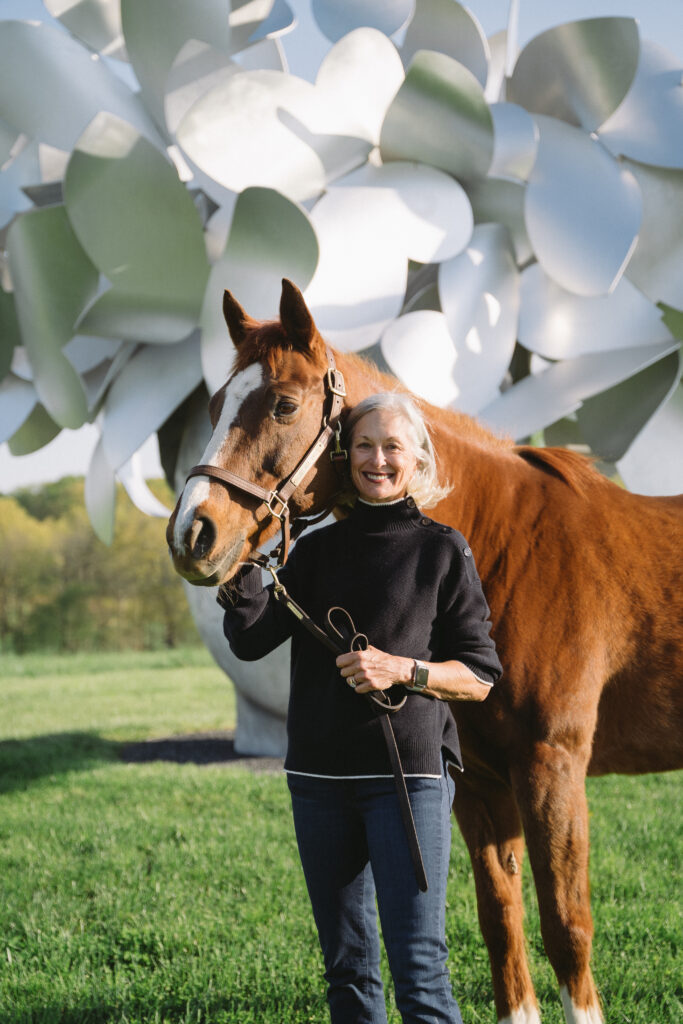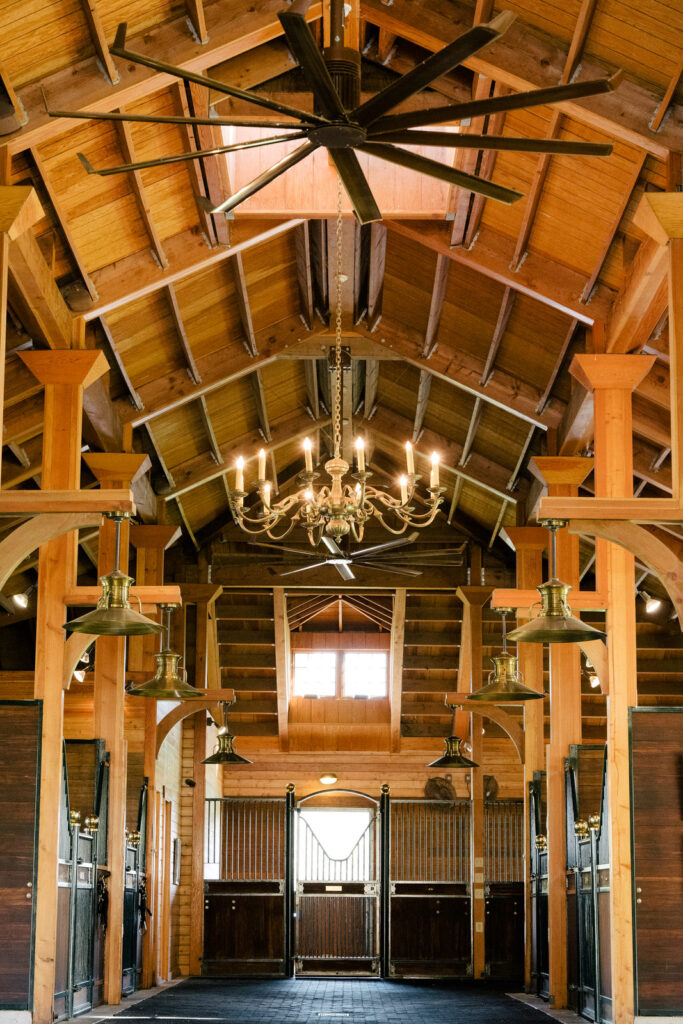Meet Barb Roux, Owner of Newly Decorated Olympic Horse
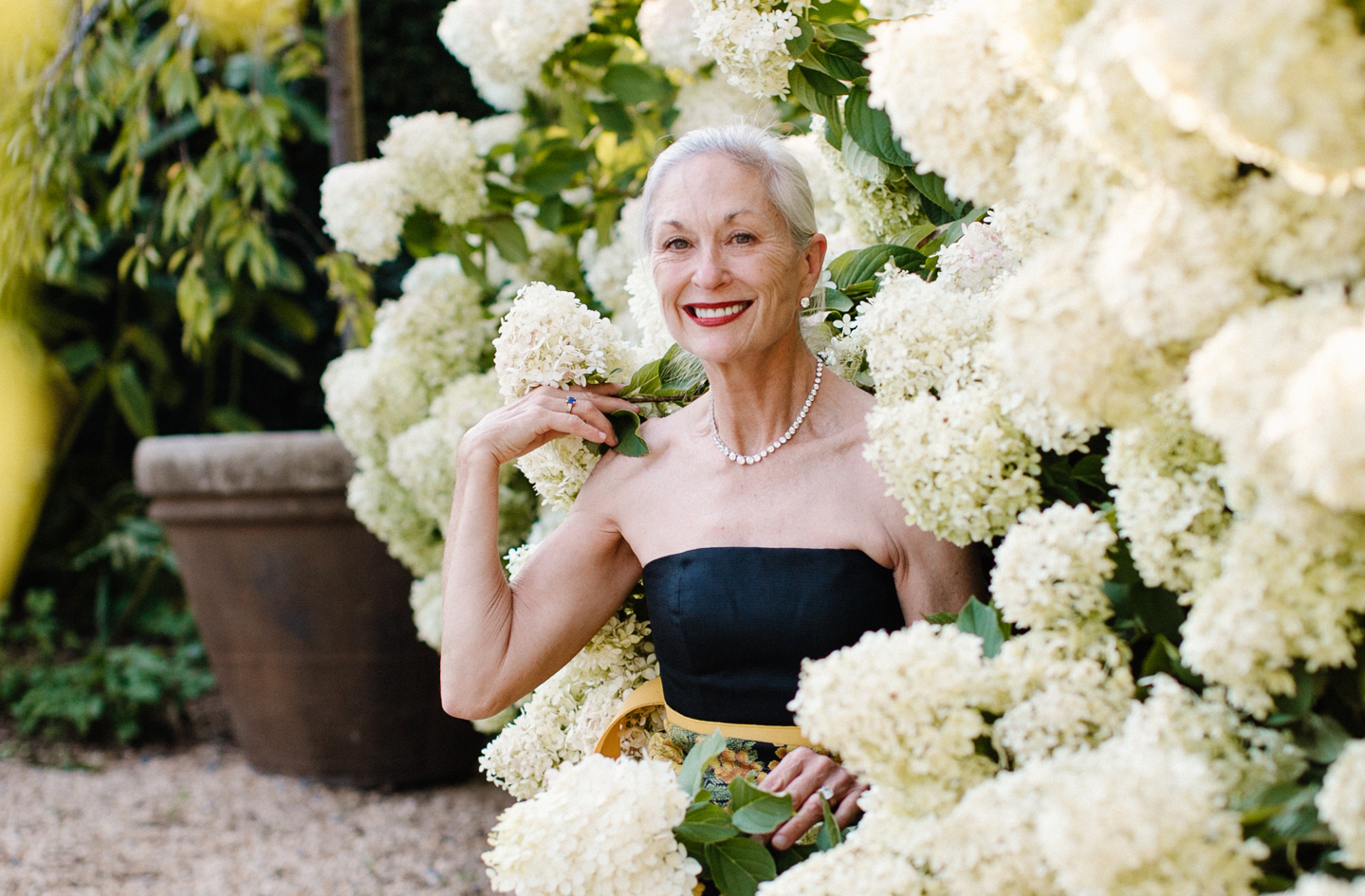
Meet Barb Roux, Owner of Newly Decorated Olympic Horse
REFLECTING ON THE TOKYO OLYMPICS, HOW SHE GOT THERE, AND LIFE IN VIRGINIA
Written by Kaitlin Hill
Photos by Jennifer Gray and Austin Kaseman
For Barb Roux of St. Bride’s Farm in Upperville, Va., success is a team effort. In July, two of her horses, Baloutinue and Confu, were shortlisted to represent Team USA at the Tokyo Olympics with rider Laura Kraut.
“It was a community and a village effort that made this a success story,” Roux says.
In addition to the support of the St. Bride’s crew, Roux’s passion for the sport, her horses, and the athletes she works with are key ingredients in the farm’s track record of triumphs.
“It’s a funny story,” Roux says of her late-in-life introduction to the equestrian world. “I bought a horse for my then 10-year-old daughter … It had always been on my bucket list to learn how to ride. I thought, ‘I’m 50. If I don’t learn to ride now, I’ll never learn.’ So we took lessons, and [my daughter] lost interest, and I gained enormous interest.”
Roux started lessons 16 years ago while living in California.
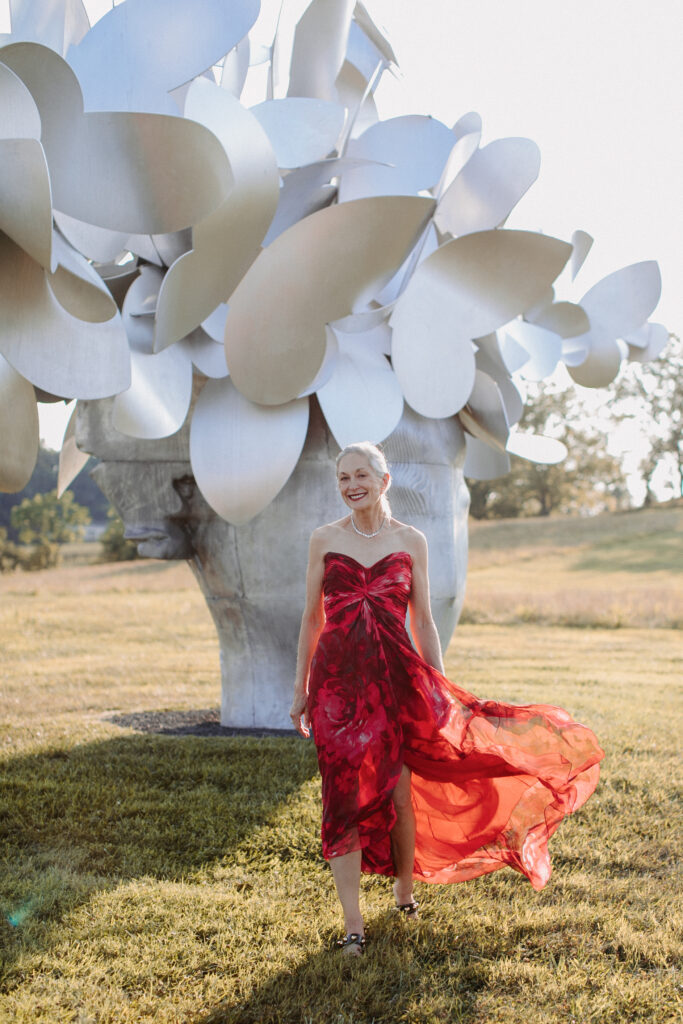
As her skills expanded, so did her respect for the sport, the athletes, and the horses.
“When I started taking lessons, I wanted to learn how to jump and compete,” she says. “And I just had enormous respect for people who could … I learned to have an extreme and genuine appreciation for the athletes that compete at the highest level in our sport.”
That respect resulted in a desire to support the sport and the decision to relocate to Virginia. “My goal was always to support an American rider,” she says. “[In California], we were really unable to find enough land to develop the program. But when we came to visit [Upperville], we saw the farm and bought it the same day.”
Roux and her husband, David, spent three years renovating existing structures and adding new ones. “We spent three years restoring the original barn, which was built in the 20s,” she says. “And then we added the paddocks, the upper barn, the auxiliary buildings like the hay barn and the utility barns. It was a huge learning experience, and I never regretted it, and I never looked back.”
Connecting with local equestrians proved to be an important part of that learning experience and crucial to developing St. Bride’s. Roux credits Olympic gold medalist Joe Fargis for many of the meaningful and lasting relationships she made.
“Joe was extremely kind in connecting me with different people who showed me their barns and let me ask a lot of questions,” she says. Fargis-forged friendships included the Firestone family, Sheila Johnson, and Tracey Weinberg of Weinberg Harris & Associates Equestrian Marketing firm. “The universe put us together,” Weinberg says. “It was literally a casual introduction.”
With a new set of similarly minded friends, Roux finished her barn and set her sights on an ambitious list of goals. “I had several goals,” she says. “One was to be in a Nation’s Cup. The second was to go to the Pan-Am Games. And the third was to go to the Olympics. I met all of those goals.”
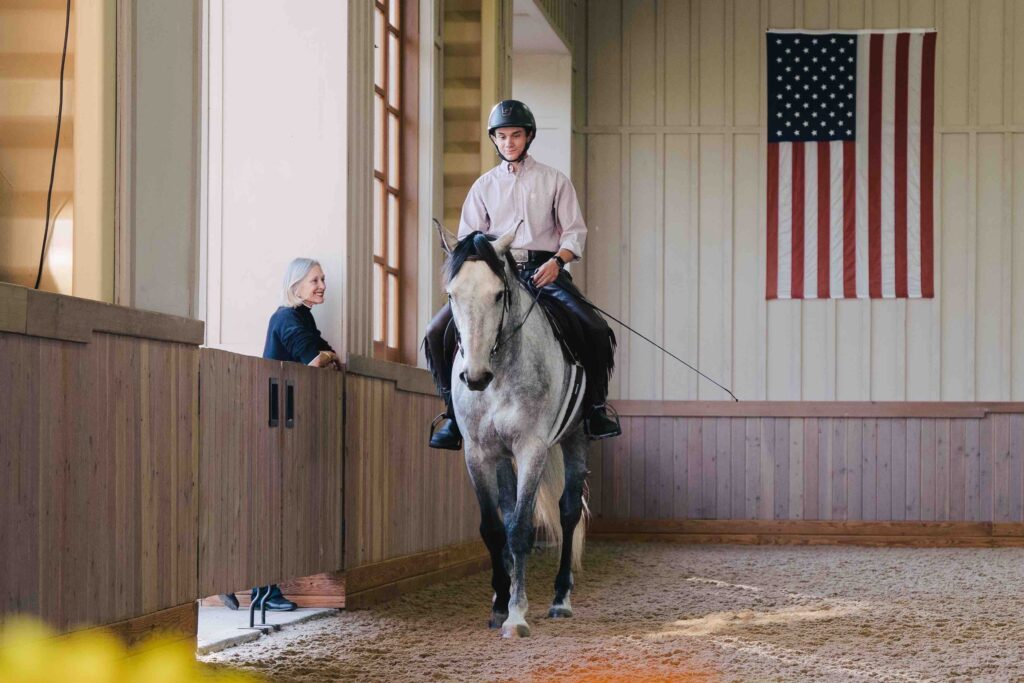
In 2017, Roux was introduced to Laura Kraut, who would not only help train St. Bride’s horses but take two to the Tokyo Olympics. “She is extraordinary,” Roux says of Kraut. “It was a stroke of luck we met, a personal introduction. We just hit it off, and it has been a partnership that has been so fulfilling.”
The journey shared by Roux and Kraut is a perfect example of the St. Bride’s lifecycle from breeding to competing at the highest levels. “I breed only with performance mares, mares that have been successful in meter 45 or above level,” Roux says. “And I breed them only to successful stallions. We start with good genetics.”
After breeding, comes training. “We have a program at the farm that trains the horses from birth until [age] 4 or 5,” Roux says. “After giving them the basics they start their formal training with a person who specializes in 4-, 5- and 6-year-olds and introduces the young horses to competition. If they prove themselves successful, they go into Laura Kraut’s program where her trainer, Julie Welles, introduces them to more complex courses and progressively higher jumps. If they are willing and able to do this work, Laura will take them from there and ride them herself.”
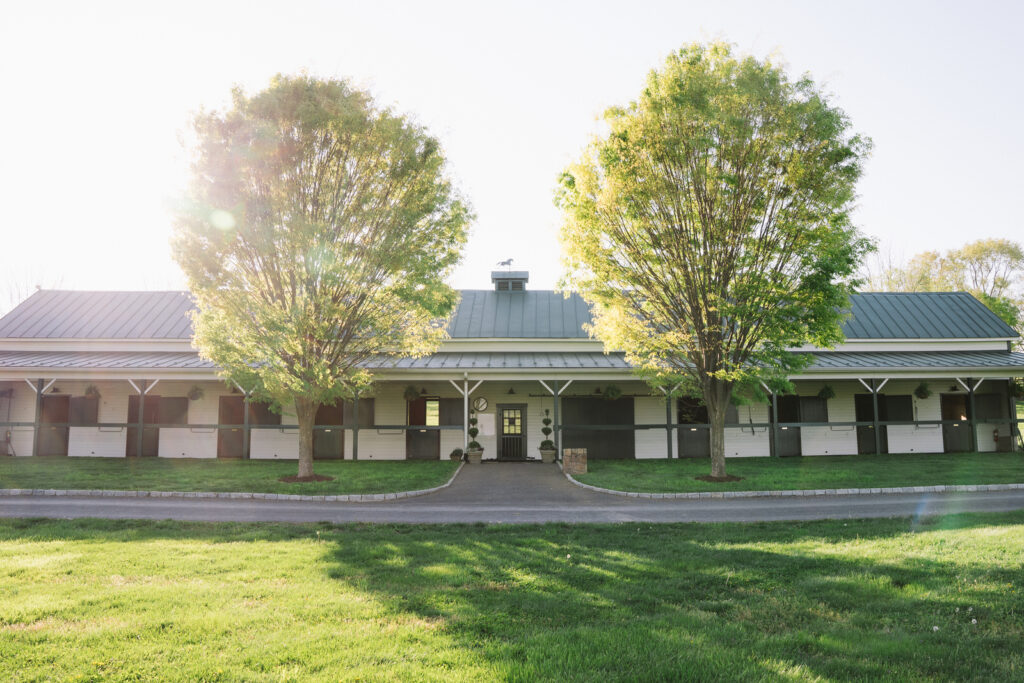
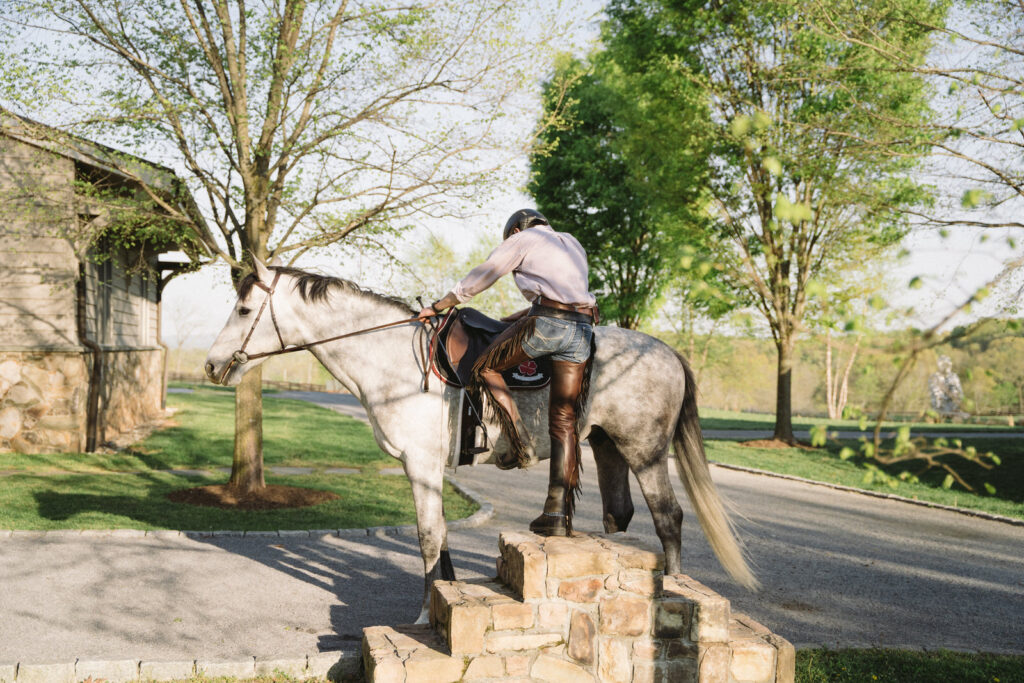
She concludes, “It’s a constant evaluation, and you have to be flexible to try new things. And then, you just have to watch how the horse develops.”
Trust and chemistry are essential too. “When they are little, you give them a foundation of trust and honesty,” Roux says. “And during their training, you give them an enormous amount of patience, to allow them to develop at their own pace.”
“And you just know when the horse is right for the rider,” she says. “Every horse doesn’t work for every accomplished rider; it has to be a real chemistry.”
Roux explains that Baloutinue, who earned a silver medal with Kraut in Tokyo this summer, is a “hometown story,” coming from Plain Bay Farm in Middleburg, where he was developed by the Prudent family. “Also, Laura grew up competing in Upperville, where her parents were involved with the show,” Roux says. “So, the whole Tokyo experience really began here.”
She adds, “And the process takes a village.” In the case of Baloutinue, Roux recognizes Margo Thomas, Mary Elizabeth Kent, Nick Skelton, Ian Allison, Arnie Gervasio, Paul Bocken, Christiana Ober, Julie Welles, and Melissa Welker as indispensable members of the team that helped get Baloutinue to the Olympics and succeed while there.
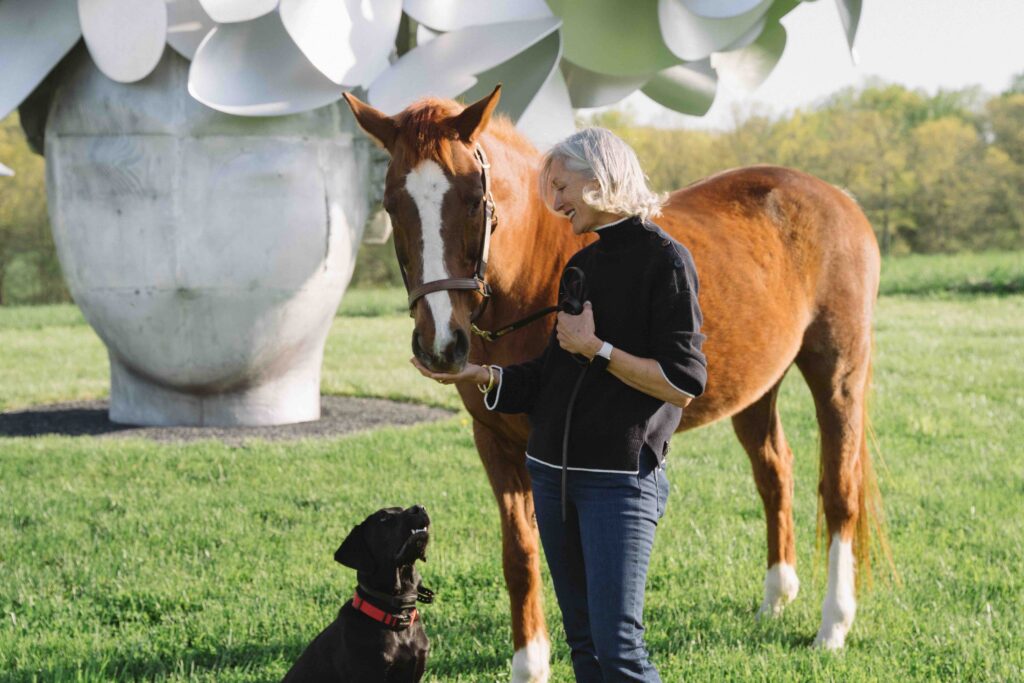
Of Kraut and Baloutinue’s Olympic achievement, Roux says, “The atmosphere was electric and was a moment that will be etched in our memories forever. Witnessing our team win the silver medal, stand on the podium to accept their medals, and celebrating this achievement with them was something I really can’t find words to describe.”
The success of the St. Bride’s program is certainly something to be proud of. But Roux finds as much joy in retiring horses as she does in raising them. “The thing I enjoy most is retiring these horses that have done a good job for me,” she says. “They’re just my rock stars. And I want them to live a life of total happiness. It is so gratifying to be able to do that.”

Barb Roux with “Just Ask Daddy” 
St. Bride’s Stables
In addition to giving back to the horses that work so hard for her, Roux contributes to a range of charitable endeavors to support the community at large. “We support charities that work to help alleviate food and housing inequities, protect animals, and also support community events like the Upperville Colt and Horse Show, where I was on the board for many years and served as president in 2019,” she says. “Additionally, this year we are hosting The Piedmont Environmental Council Gala on Saturday, October 2 at St. Bride’s.”
“More generally, we focus on giving back in ways that impact the most people,” she says. “We focus on conservation, education access, and global health issues. We also support a variety of biomedical research efforts, including new cancer therapies. Finally, we are enthusiastic sponsors of various initiatives to support the men and women in our military, in particular the members of our Special Forces Community.”
As Roux looks to the future, she plans to continue building on St. Bride’s reputation for excellence and further establish her sport horse-breeding program in America. “Our goal is to develop a line of St. Bride’s horses that can successfully compete at the Grand Prix internationally,” Roux explains.
With her undeniable drive, passionate team, and deep understanding of what makes a successful steed, it’s a safe bet that Roux will achieve her goals. ML
This article first appeared in the September 2021 Issue.
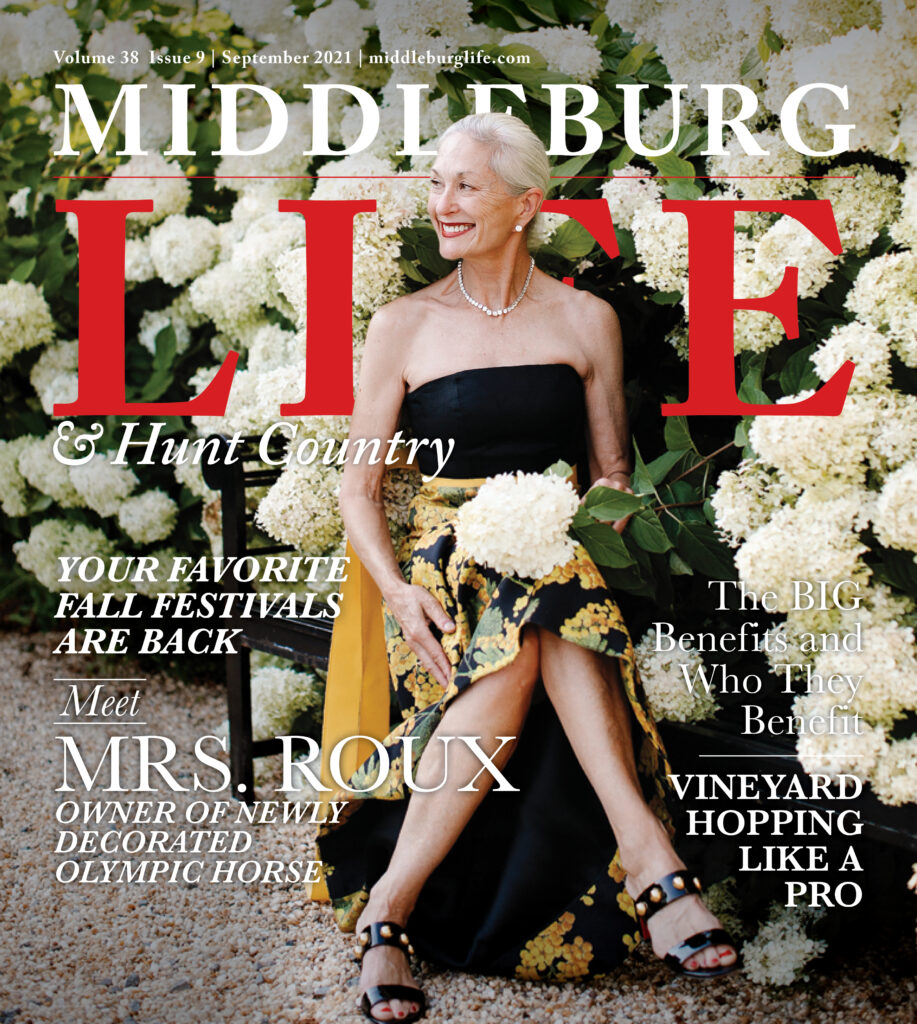
To see more of St. Bride’s Farm check out our Beautiful Barns article here.


